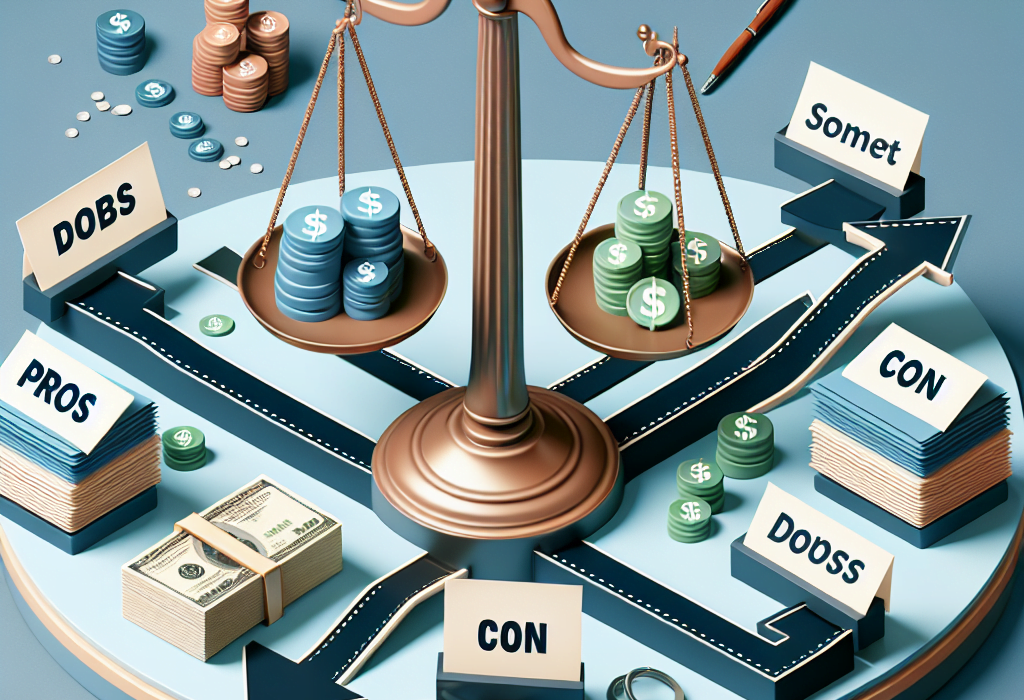Introduction
Given the ever-rising debt figures and the increasing number of people with hefty financial obligations, it is crucial to understand various ways to manage and settle debts. One viable option to navigate the tumultuous waters of debt is debt settlement. Debt settlement is a process where a debtor gets to negotiate with the creditor and pay less than the total amount owed. However, like any other debt management strategy, debt settlement has its characteristics, benefits, and drawbacks. It also has alternatives tile should consider for an all-rounded approach to managing debts.
Debt Settlement: An Overview
Debt settlement involves directly negotiating with creditors to pay a reduced lump sum that the creditor will accept as full payment. The reduced amount could be anywhere from 30% to 70% of the total debt amount.
This method is often used when an individual is unable to keep up with the minimum payments on unsecured loans such as credit card debts, personal loans, medical debts, and certain business debts. It’s important to note that you cannot settle secured debts like mortgages or auto loans because the lender can just repossess the physical property.
Pros of Debt Settlement
Debt settlement can have numerous advantages depending on an individual’s economic situation:
Significant Reduction in Debt
The obvious benefit of settling debts is that it enables the debtor to pay less than the amount owed.
Avoids Bankruptcy
Debt settlement is usually viewed as a preferable alternative to declaring bankruptcy, which can have a long-lasting negative impact on one’s credit report.
Boosts Mental Health
Being in debt could cause stress and anxiety. By settling debts, individuals can help alleviate these mental health concerns.
Cons of Debt Settlement
While debt settlement may offer an array of benefits, it also presents several concerns that one should keep in mind:
Negative Impact on Credit Score
Debt settlement can have a negative effect on one’s credit score as it usually involves stopping payments to creditors while the settlement negotiations are ongoing.
High Fees
Debt settlement companies often levy high fees for their services, which might make the overall savings from the settlement less meaningful.
Tax Implications
Forgiven debts could be viewed as taxable income, resulting in unexpected tax bills.
Alternatives to Debt Settlement
Debt settlement isn’t the only approach to managing debts. Different strategies might work better depending on the situation.
Debt Management Plans
Debt management plans involve negotiating lower interest rates and monthly payments on your debts, enabling you to pay off the total amount over 3 to 5 years.
Debt Consolidation Loans
A debt consolidation loan is a single loan that you use to pay off all your debts. The goal is to get a consolidation loan with a lower interest rate than your current debts.
Bankruptcy
Bankruptcy should be a last resort, and it’s often advisable for individuals who are unable to pay their debts in the foreseeable future.
Conclusion
While debt settlement has the potential to significantly reduce one’s financial obligations, it is not without its drawbacks. As a debtor, it’s essential to understand how it works and what it entails before committing to it. Remember, there are other debt management strategies out there; choosing the right one depends on individual circumstances, goals, and preferences.
Frequently Asked Questions
1. Who Should Consider Debt Settlement?
Debt settlement is often a viable option for individuals who have significant unsecured debts and can’t keep up with minimum payments or for those who wish to avoid bankruptcy
2. How Does Debt Settlement Affect My Credit Score?
It likely will have a negative impact on your credit score. When you stop making payments to your creditors to save up a lump sum for a settlement, your credit score will take a hit.
3. Are Debt Settlement Costs Tax Deductible?
No, the IRS doesn’t allow you to deduct the costs of debt settlement. However, you might have to report the forgiven debt as income.
4. Can I Perform Debt Settlement Negotiations Myself?
Yes, you can negotiate with creditors on your own. However, debt settlement companies often have more experience and might be able to secure a lower settlement amount.
5. Are All Debts Eligible for Debt Settlement?
No, not all debts are eligible for settlement. Generally, only unsecured debts like credit cards, personal loans, and medical bills can be settled. Secured debts like mortgages or car loans are not eligible because the lender can foreclose or repossess the property if you don’t pay.













